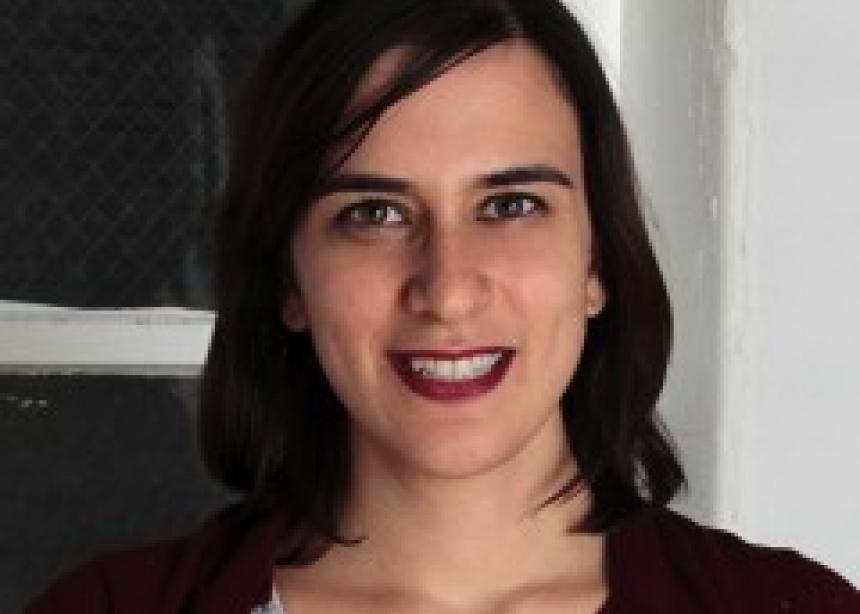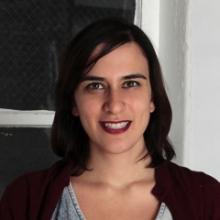Growing up, we didn’t celebrate Halloween. While many Americans might have fond memories of strategic trick-or-treating and silly costumes on Halloween, my own memories involve going to great lengths to avoid it.
My parents, devout Muslims, banned Halloween in our home, condemning it as a “celebration of the devil.”
I wasn’t that bothered when we skipped out on Thanksgiving and Christmas, but Halloween was the one holiday I wanted to take part in. After all, it wasn’t centered on family, itchy dresses or heavy meals. Halloween covered all of the things I wanted from a holiday: costumes, gluttony and ghost stories.
Jealous of my neighbors, I stubbornly made the case for trick-or-treating every year. My attempts were usually unsuccessful, landing me with impromptu sermons instead of candy.
While some members of our tightknit congregation could sneak in Halloween-related celebrations at school, I wasn’t as fortunate. My parents sent me to an Islamic school where Oct. 31 was just another day in the year. But outside of school, the grip of Halloween fever was all too noticeable: Shops, my favorite television shows and the decorated lawns of neighbors all served as reminders that I would be spending my own Halloween dodging the knocks of revelers.
Pretending that we weren’t home during trick-or-treating eventually became a time-honored tradition in my house. It wasn’t enough to leave the house undecorated. As soon as we saw the slow trickle of costumed children, we would turn out the lights and quietly sit upstairs, in order to give the impression that we weren’t home. Every ring of the doorbell or knock at the door filled me with dread that the child with the pumpkin-shaped pail would figure out that we were actually sitting upstairs, holding out on giving them candy.
We didn’t stay at home every year, and by some miracle (or a lot of nagging), my parents gave us the chance to celebrate Halloween twice. Unfortunately, I managed to blow my one shot at trick-or-treating.
When I was 10, I joined my cousins and older brother to knock on the doors of our neighbors, and I decided to dress up as a clown. As we went from house to house, I would stand in the doorways with an exaggerated frown, until candy was dropped into my bucket. Then, I would smile and thank the person for making me a happy clown. While I thought this was clever, it was apparently an awkward experience for everyone else. My only night trick-or-treating ended with my parents scolding me for creeping out my neighbors.
A few years later, I had my second shot. My mother took me and my three brothers to a festival with rides, candy and an elaborate haunted house. I went into the haunted house with my mother and my youngest brother, who has severe autism. I’ve always been jumpy, and every corner of the dark house made me seriously question my devotion to Halloween. But my brother would soon snap me out of my frightened trance, when he waded into a pool designed to look like a spooky swamp. In a hilarious twist, he managed to frighten the person waiting to jump out and scare the crowd. I walked away feeling the familiar sting of teenage humiliation, but the huge bag of Halloween candy managed to ease the pain — until the stomachache kicked in.
My history with Halloween touched on some of the more defining aspects of my experience as a young American Muslim. Whether it was trick-or-treating, or wanting toast instead of pita bread, or lobbying for a Happy Meal instead of a home-cooked meal, all of these experiences reflected a desire to belong to the country that I grew up in.
Looking back, I remember feeling angry with my parents for not letting me participate in Halloween, but I can now understand where they were coming from. Maybe part of it was about religion, but a bigger part of it was about an anxiety about watching their children turn into strangers.
It’s natural for parents to want to pass on their values to their children, and that struggle only becomes more difficult in a foreign country. So maybe my Halloween experiences aren’t traditional, but they capture a struggle that was important for me as a first-generation American: belonging.
Sara Yasin is a Palestinian-American raised on a steady diet of hummus and fried chicken. She works as deputy politics editor for PolicyMic in New York City. She writes about gender and Islam, and her work has been featured on the websites of Jezebel, Ms. Magazine, the Guardian, Salon and The New York Times. She tweets from @missyasin.
Oct. 31, 2013



Add new comment
Canadian Mennonite invites comments and encourages constructive discussion about our content. Actual full names (first and last) are required. Comments are moderated and may be edited. They will not appear online until approved and will be posted during business hours. Some comments may be reproduced in print.